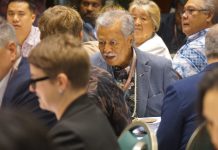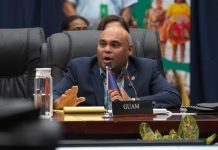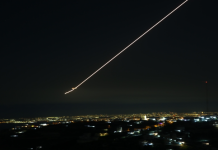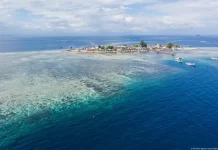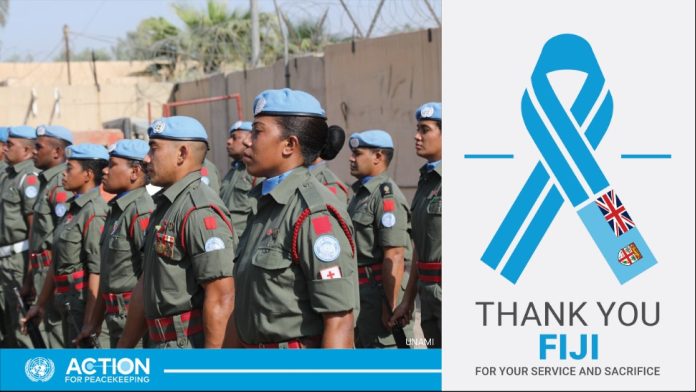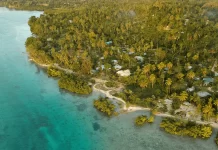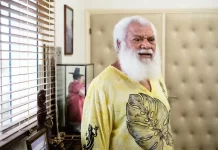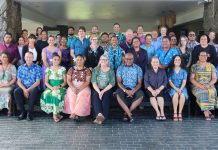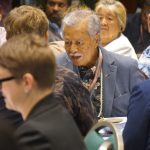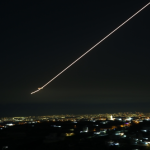By Dirk Wagener, UN Resident Coordinator to Fiji, Solomon Islands, Tonga, Tuvalu, and Vanuatu
29 May – the International Day of UN Peacekeeping – is an important day on the United Nations’ annual event calendar.
It is a day that we mark with great pride, admiration, solemnity and honour for the men and women who have contributed immensely to international peace and security. It is both an opportunity to celebrate strides made towards peace and security, and to remember the heroism displayed in the face of great difficulty and tragedy, with some peacekeepers having made the ultimate sacrifice for the sake of peace.
Fiji is very special in this regard because the chances are that, as you read this, you probably personally know some of these heroes – some of them are your parents, an aunt, a cousin, a sibling, or a neighbor. Many of the current and past Fiji leaders from all walks of life have also served as UN peacekeepers.
This is a country in which peacekeeping is more than a reference to ‘the blue helmets’ – peacekeeping resonates on a very personal level with many Fijians here and across the globe.
Fiji’s significant contribution to global UN Peacekeeping operations has been and remains a point of huge admiration and respect both within and outside of the UN.
On a global scale, since 1948, over two million peacekeepers have served in 71 missions, supporting countries to navigate the challenging path from conflict to peace. Currently, there are over 76,000 peacekeepers from more than 120 countries deployed in 11 global operations.
For more than four decades, Fiji has sent more troops and police per capita to serve UN peacekeeping operations than any other country in the world. We are in deep gratitude for their service.
Fijian peacekeepers demonstrate extremely high levels of professionalism and dedication wherever they serve. Currently, Fiji provides over 330 uniformed personnel to seven UN peace operations globally. Today, its largest deployment of more than 160 UN Police is to the United Nations Assistance Mission for Iraq (UNAMI).
Fiji first contributed peacekeepers to the UN when it deployed troops to Lebanon in 1978 and it has been a consistent contributor since. With over 330 uniformed personnel, including 42 women, across seven peace operations, Fiji is the 43rd largest contributor in absolute terms.
As well as contributing to the UNAMI, Fiji also contributes to the UN Disengagement Force (UNDOF), the UN Mission in South Sudan (UNMISS), UN Truce Supervision Organisation (UNTSO), UN Interim Force in Lebanon (UNIFIL), the UN Interim Force in Abyei (UNISFA), the UN Integrated Transition Mission in Sudan (UNITAMS), and the UN Mission to Support the Hudaydah Agreement (UNMAH).
Having peacekeepers serve in conflict areas is a life-saving measure on the ground. Having more UN Peacekeepers in conflict areas results in fewer civilian deaths, less violence, and a higher chance of lasting peace.
In many ways, UN Peacekeeping is a selfless profession dedicated to our highest collective goal: Peace. At great personal risk, peacekeepers work tirelessly in some of the most dangerous places to protect civilians, uphold human rights, and strengthen institutions.
In marking this special day this year, I would like to conclude by referencing the UN Secretary-General António Guterres’ global plea on behalf of UN Peacekeepers, for continued support for their impactful, invaluable work:
“More than 4,300 have paid the ultimate price while serving under the UN flag. We will never forget them. In order for our peacekeepers to respond to the challenges of today and tomorrow, they need the world’s support. September’s Summit of the Future will be a moment for countries to carry ideas forward through a New Agenda for Peace, which links peacekeeping with all efforts to prevent and end conflict. On this important day, and every day, let’s re-commit to supporting those who work for peace: The UN peacekeepers,” Guterres said.
Fiji sets a gold standard in terms of its support to UN peacekeeping, especially in a time where conflict continues to engulf homes and indeed entire countries.
Lasting peace requires hard work, sacrifice, and an unwavering commitment to our peacekeepers. Now, more than ever.


